Document Author
Year Published
Topic
- 100% Access to Justice (5) Apply 100% Access to Justice filter
- Reports, Evaluations, Best Practices, Surveys (5) Apply Reports, Evaluations, Best Practices, Surveys filter
- Research (5) Apply Research filter
- Articles & SRLN Briefs (4) Apply Articles & SRLN Briefs filter
- Forms (4) Apply Forms filter
- Plain Language & LEP (4) Apply Plain Language & LEP filter
- Self-Help Centers (4) Apply Self-Help Centers filter
- Trial Court Self-Help (4) Apply Trial Court Self-Help filter
- Forms (3) Apply Forms filter
- Plain Language (3) Apply Plain Language filter
- Reports (3) Apply Reports filter
- Simplification (3) Apply Simplification filter
- Ethics Education (2) Apply Ethics Education filter
- Libraries (2) Apply Libraries filter
- Triage (2) Apply Triage filter
- Attorney Ethics (1) Apply Attorney Ethics filter
- Best Practices (1) Apply Best Practices filter
- Best Practices for Self-Help Centers (1) Apply Best Practices for Self-Help Centers filter
- Constitutional Issues (1) Apply Constitutional Issues filter
- Evaluating a Self-Help Center (1) Apply Evaluating a Self-Help Center filter
- Evaluation (1) Apply Evaluation filter
- Judges (1) Apply Judges filter
- Judicial Ethics (1) Apply Judicial Ethics filter
- Law Libraries (1) Apply Law Libraries filter
- Legal Aid (1) Apply Legal Aid filter
- LEP and Access (1) Apply LEP and Access filter
- Linking a Self-Help Center to Other Services (1) Apply Linking a Self-Help Center to Other Services filter
- Managing a Self-Help Center (1) Apply Managing a Self-Help Center filter
- Presentations (1) Apply Presentations filter
- Public Libraries (1) Apply Public Libraries filter
- Unbundling (1) Apply Unbundling filter
- Webinars (1) Apply Webinars filter
Region
- (-) Remove United States filter United States
Tags
Post date
Search results
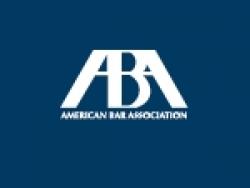
Report: Standards for Language Access in Court (ABA 2012)
A project of the Standing Committee on Legal Aid and Indigent Defendants, the Standards for Language Access in the Courts (2012) (available here) offers standards and extensive commentary to provide guidance to courts in designing, implementing, and enfo ...
Report: The Sustainable 21st Century Law Library: Vision, Deployment and Assessment for Access to Justice (Zorza 2012)
Richard Zorza writes that “this is a moment of opportunity for law libraries to transform themselves as leaders in providing access to justice for all as part of a broad alignment of the legal system.” He notes that law libraries are becoming entry points ...
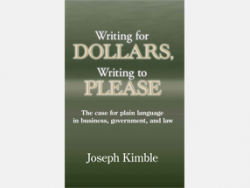
Book: Writing for Dollars, Writing to Please The Case for Plain Language in Business, Government, and Law (Kimble 2012)
This book collects the empirical evidence supporting the value of plain language in business, government, and law. Professor Kimble summarizes 50 studies (no less) that show using plain language can save organizations and agencies a significant amount of ...
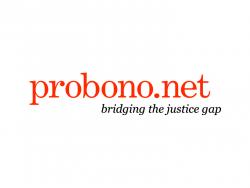
Webinar: Public Library Webinar Series (Pro Bono Net 2012)
In the fall of 2012 Pro Bono Net produced the Libraries and Access to Justice Webinar Series to increase awareness among librarians and community stakeholders about free, online resources for people with legal needs, how librarians can access and utilize ...
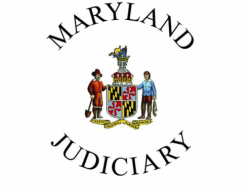
Report: Evaluation of Glen Burnie District Court Self-Help Center (Maryland 2012)
This is a comprehensive evaluation of the Glen Burnie District Court Self-Help Center that helped lay the groundwork for Maryland now completely statewide and all court levels centralized self-help, see more at https://mdcourts.gov/selfhelp. From the intr ...
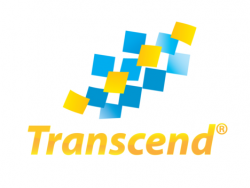
Report: A Comparative Readability Study of Plain Language Court Forms (Mindlin 2012)
This article presents the results from the first quantitative readability study of plain language court forms in the United States. Sixty citizens on a jury panel were selected to respond to brief questionnaires that tested relative comprehension of plain ...
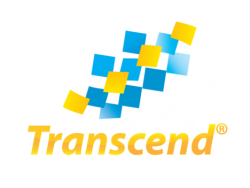
Article: Focus Group: Connecting Writers of Legal Documents with Their Audience (Mindlin & McCormick 2012)
This article is about focus groups which are a qualitative research tool that tell you if the main message and purpose of your form are understood. It also tackles who uses focus groups, data analysis, number and location of focus groups to be conducted, ...
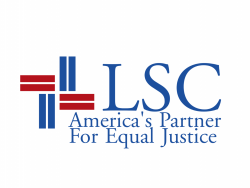
Article: Using Technology to Enhance Access to Justice (Cabral, Chavan, Clarke, Greacen, Hough, Rexer, Ribadeneyra, Zorza 2012)
This is a collection of seven article published in the Fall 2012 issue of the Harvard Journal of Law and Technology (JOLT) as part of LSC's June 2012 technology summit. These articles focus on how to best utilize particular technologies to enhance ac ...

Article: It’s Not Triage if the Patient Bleeds Out (Pollock & Greco 2012)
Recommended citation: John Pollock & Michael S. Greco, Response, It’s Not Triage if the Patient Bleeds Out, 161 U. PA. L. REV. PENNUMBRA 40 (2012), http://scholarship.law.upenn.edu/cgi/viewcontent.cgi?article=1102&context=penn_law_review_online. ...
Article: Turner v. Rogers- Improving Due Process for the Self-Represented (Zorza 2012)
Article by Richard Zorza on the U.S. Supreme Court’s decision in Turner v. Rogers (2011) and how courts should see this decision as an opportunity to improve their services and programs for self-represented litigants. Recommended Citation: Richard Zorza, ...